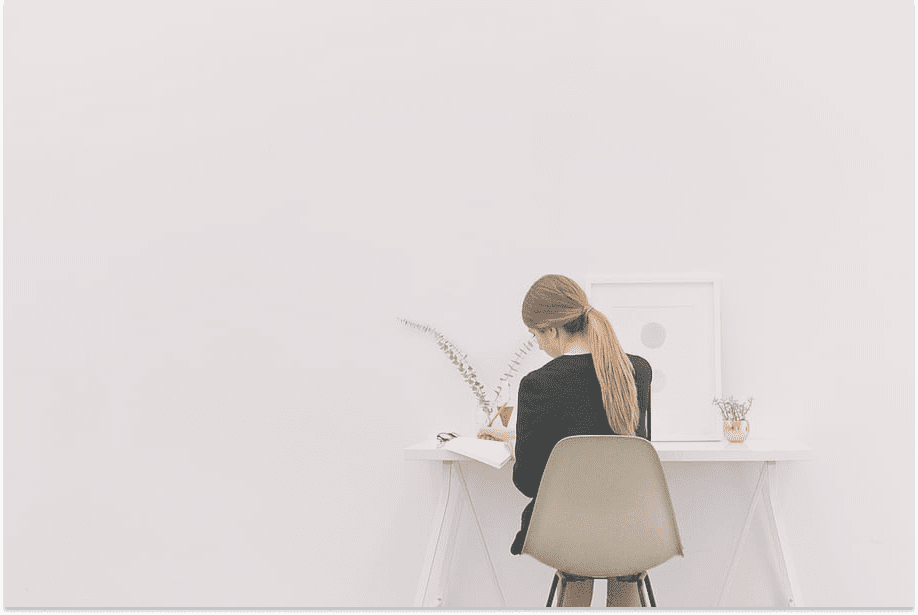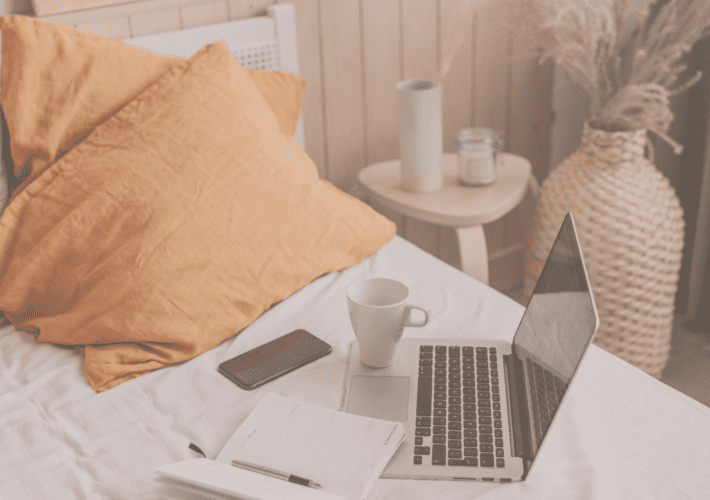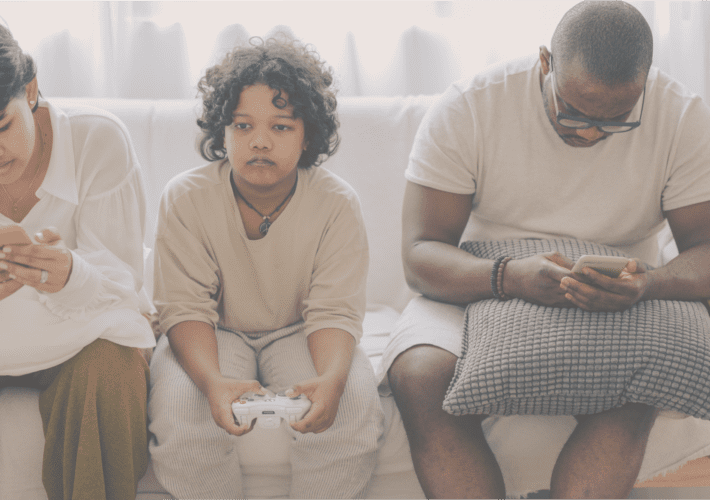If you’ve ever planned to spend a few minutes on social media, but quickly, these few minutes turn into an hour, and before you know it, you are juggling work and scrolling through the next content while muttering, “just this last one”. You’re definitely not alone.
In fact, an article from teamstage.io confirmed that 50% of employees say that they are always distracted by their phones while at work. What’s worse, 98% of the workforce says they’re distracted by one thing or the other, at least 3times a day. That’s a pretty huge percentage if you ask me.
Whether the above applies to you or not, we all need a high level of focus to get things done.
But before we talk about how to increase our focus level, let’s try to understand why we are always distracted in the first place.
Why We Are Easily Distracted: Your Brain Loves Reward
You are probably wondering, what reward? I’ll explain.
Do you ever wonder why you feel the urge to try something new every 30 minutes? This does not have to do with work alone. It happens in our day-to-day activities with people-conversing, learning, working, and existing generally. Someone is talking to you and in a few minutes, you’re already looking bored and distracted – looking for the next interesting thing to do.
According to a study, it takes about an average of 23min for our mind to focus on a particular thing before it loses concentration again.
This mechanism that makes our brain seek novelty and stimulation is called ‘Novelty bias’.
Due to this bias, our mind is constantly on the search for less stimulating tasks that do not require sustained concentration every few minutes.
Chris Bailey mentioned in his Ted talk that our minds reward us for looking out for these distractions. It releases dopamine that gives us the satisfactory feeling that we get from eating our favorite meal or watching our favorite movie on Netflix.
Our brain loves social media trends, slack notifications, emails, and all those little tasks that require less brain power and focus and it tricks our minds into giving it exactly that.
Increased Brain Activity
One of the few reasons we have very low attention spans is not exactly because we are distracted. It is because our brains sometimes get overstimulated trying to interpret too many sensory inputs over a short period. When we multitask, we may believe that we are helping ourselves get things done faster, but in reality, we are doing the complete opposite. We think our brains can focus on many tasks at once, but this is not true. You’re either trying to fix a bug in your code or finish off an article in your draft. And since you can’t do both at the same time, your brain is required to switch focus between these two tasks, which can be detrimental to our brain.
If you’ve ever been in the middle of an activity that demands a lot of focus and has been interrupted by a phone call, you know how difficult it is to get back into the flow you were in before the call. Now imagine how much time you will waste if you keep that up.
Distractions like phone notifications, multitasking, bright lights, and loud noises can overstimulate the brain and cause us to feel irritable and lose focus every few minutes.
Finding Your Focus amidst Distractions
Now that we know why we can’t seem to focus, we will discuss a few tricks and tactics that have helped me keep my focus at work, and in my personal life.
Block Out Bright Lights
Recall how we discussed sensory overload in our first point. Well, if you have a wild imagination like myself and have ever found yourself working one minute and the next minute you’re staring at a picture in your room and then making a beautiful story out of it, this is for you.
Working in a dimly lit room is one way to block out external distractions if your brain often becomes distracted by processing too many sensations at once. This approach will enable your brain to narrow your attention to the lighting present in your work area alone.
Lower light levels mean fewer distractions.
An article by inverse mentioned a study from the University of Stuttgart. The result showed that darkness gave people a sense of freedom from their limitations, and the ability to explore, which in turn improved their creativity.
When your brain can’t pick up other distractions and has fewer things to process, your creativity increases and you’re able to think clearer and faster.
This is not to say that working in a dark room does not have its downsides. As much as it boosts creativity, some studies have also shown that poor light exposure can negatively affect our physical and mental well-being. To avoid this, I practice the 20-20-20 rule whenever I’m working. This rule states that one should look 20 feet away from the computer screen for at least 20 seconds every 20 minutes when working to avoid eye strain and fatigue. So, I always make sure to open the window every 20-30 minutes to allow natural light into the room for a few minutes. Using apps like Eye Care 20 20 20 can also act as a reminder and help to keep track of time.
Plan Your Day Ahead
On days I do not have my day planned in advance, I often end up spending the first hour of the morning doing something completely ad hoc. When the brain is disorganized and has a lot to process at once, it becomes easily exhausted. And just because we are not sure where to start, we become overwhelmed and might end up spending our most productive hours of the day contemplating where to start.
One way to deal with this is to make a list of everything you need to get done the following day the previous evening or first thing the following morning. When you wake up, your brain is already aware of the first thing to draw your attention to. And once you get into that flow, the rest is history.
Note Your Most Strategic Hour of the Day
I believe we all have our best hours of the day. At that time, our brain is more focused and can get a 5hours task done in 3 hours. For me, it’s in the early mornings when I just wake up. I know that I’m most creative during this hour and put all my most creative tasks first before others.
Embrace the Distractions
This sounds like bad advice, but to be honest, embracing some of the positive or negative distractions over time has helped me personally.
Before I started this approach, I would originally force myself to get started with the task I have piled up. But just as it takes the brain up to 30 minutes to get back into a flow when distracted, it can take me up to an hour to get through whatever is distracting me and finally focus.
So, I thought, why not just spend that 30 minutes to 1 hour satisfying that craving if it takes me this long to get back into that workflow? And, I started to do that. I would set a timer for 30 minutes or less and always make sure to get up when the timer goes off. I noticed that my mind gets the same satisfying feeling as when I’ve just completed a task. With this, my brain is less cluttered and clear on what to focus on.
N.B-This approach works only if you’re accountable to yourself.
Get Enough Sleep
I don’t think this should be news to anyone. How smooth your day will go depends greatly on the hours of “deep” sleep you get every night. When you deprive yourself of good sleep all in the name of ‘work’, your mental health and performance steadily decline until it reaches a point where your energy level is extremely low. It becomes more difficult to focus and pay attention at this point and you get easily confused and frustrated.
What good does it do to work longer hours without adequate sleep if our bodies and our work suffer as a result at the end of the day? That seems illogical.
Getting adequate sleep at night is the way to go if you want to feel happier, more productive, and supercharged every morning.
What’s More? Practice.
Rather than looking for more hacks to help you focus on what matters, note all of the points that you’ve learned from this article or other source, select the best approach that works for you, practice it and constantly measure the result till it becomes a habit. With this, your brain gets accustomed to ignoring the things that do not matter and focusing on what does.






5 COMMENTS
Bruce
3 years ago“ Lower light levels mean fewer distractions”
….Golden .
Temi Osuntayo
3 years agoI do the “plan my day ahead sometimes” I’ll give blocking bright lights a trial.
racheltomi
3 years agoYou definitely should.
Balogun Oladimeji
3 years agoImpressive. Quite insightful.
racheltomi
3 years agoI’m glad you found it useful.